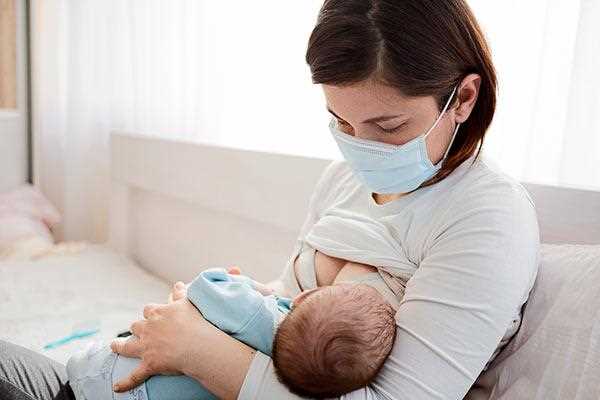
25-Feb-2023
Worst Impact of not breastfeeding for babies
Breastfeeding is your baby's most natural source of nutrition. It provides essential nutrients and antibodies to help protect your child from illness and disease. While formula can provide a viable alternative for some, it cannot match the health benefits breastfeeding offers. But unfortunately, many mothers are not aware of the risks of not breastfeeding their babies or find themselves unable to due to various circumstances.
When a baby is born, their immune system is not fully developed yet.
Breastfeeding provides antibodies that help protect infants from infection. These antibodies are passed from the mother to the baby through breast milk.
According to the Centers for Disease Control and Prevention (CDC), breastfeeding also helps reduce the risk of Sudden Infant Death Syndrome (SIDS). Additionally, not breastfeeding has been shown to reduce the risk of childhood obesity and type 2 diabetes.
Let's discuss in more detail
Not breastfeeding is associated with an increased risk of obesity and type 2 diabetes. In fact, the American Academy of Pediatrics (AAP) states that “breastfeeding protects against obesity later in childhood and adulthood.”
There are a few reasons for this. First, when a baby is born, they have a small stomach. This means that they can only eat small amounts at a time. Breastmilk is very easy to digest, so babies can get all the nutrients they need without filling up their tummies too much.
Second, breastmilk has more fat than formula. This fat helps babies feel full and satisfied after eating. Formula-fed babies often want to eat more because they don’t feel as satisfied.
Lastly, breastfeeding helps babies regulate their insulin levels better. Insulin is a hormone that helps the body use glucose (sugar) for energy. When insulin levels are off, it can lead to type 2 diabetes and obesity.
Secondly, Not breastfeeding is associated with an increased risk of childhood leukemia. Leukemia is the most common cancer in children, and the majority of cases are diagnosed before the age of five. While the exact cause of childhood leukemia is unknown, it is thought to be related to a combination of genetic and environmental factors
There are many short- and long-term negative impacts of not breastfeeding for both mother and child. In the short-term, mother and child miss out on the bonding experience of breastfeeding, and the child may be more prone to illness since they are not receiving the antibodies present in breastmilk. Additionally, the mother may experience engorgement, pain, and/or infection if she is not able to properly care for her breasts during this time.
In the long-term, not breastfeeding can lead to a lifetime of poor health for both mother and child. The child may be more likely to suffer from obesity, diabetes, asthma, allergies, and certain types of cancer. The mother may also be at an increased risk for developing certain types of cancer, osteoporosis, heart disease, and type 2 diabetes.
Therefore, it is important for mothers to be aware of the potential risks before making the decision whether or not to breastfeed their babies. With proper education and support from family members, medical professionals and organizations like La Leche League, mothers can make an informed decision about how best to feed their babies while also avoiding any negative impacts associated with not breastfeeding.

SEO and Content Writer
I am Drishan vig. I used to write blogs, articles, and stories in a way that entices the audience. I assure you that consistency, style, and tone must be met while writing the content. Working with the clients like bfc, varthana, ITC hotels, indusind, mumpa, mollydolly etc. has made me realized that writing content is not enough but doing seo is the first thing for it.
Join Our Newsletter
Subscribe to our newsletter to receive emails about new views posts, releases and updates.
Copyright 2010 - 2026 MindStick Software Pvt. Ltd. All Rights Reserved Privacy Policy | Terms & Conditions | Cookie Policy